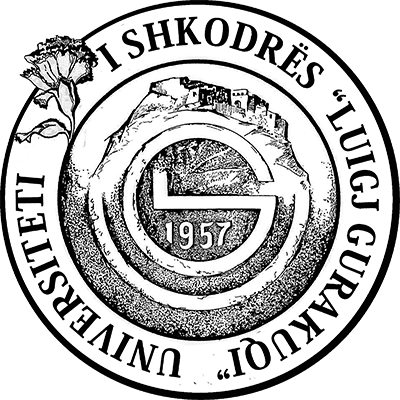Papers are invited for the International Conference on ‘Transhumance and Rural Development” in Europe, planned as an in-person (with exceptionally circumstances for online participations) event at the University of Shkoder “Luigj Gurakuqi”, on 10 – 11 December 2021. The hosting faculties are the Faculty of Social Sciences, Faculty of Economy, and Faculty of Natural Sciences.
The word ‘transhumance’ comes from the Latin ‘trans - beyond’ and ‘humus - earth’. Transhumance is a form of agro-pastoralism that involves the seasonal movement of shepherds with their livestock in more or less long stands, from the mountain to the field or the coast and vice versa, in search of the most suitable conditions for grazing. This early tradition of movement of certain population groups dates back to antiquity and was practiced by many Mediterranean populations. Previously, it included the entire Albanian territory, while in the recent years there has been a reduction of the areas where it is practiced. However, this phenomenon, which includes a rich world of material and intangible culture, is found today in northern and southern Albania. Seeing the importance of this tradition for the pastoral communities that practice it, the relationship that is created with the physical landscape and the wealth it carries in the cultural aspect, AADF is supporting the Albanian Ministry of Culture in preparing the Transhumance dossier to declare it a UNESCO protected phenomenon. Albania's file will then be joined by a joint application with other European countries such as France and Spain.
The Albanian economy is at the cornerstone of a new paradigm of sustainable development with the ‘National Strategy for Development and Integration 2015 – 2020’ placing major emphasizes on two key sectors of the economy, namely tourism and agriculture. Through this conference we aim to raise awareness of the academic, professional and practitioners’ community, and public opinion about the importance of the phenomenon of transhumance in particular and rural development in general as an important element towards sustainable rural development. An illustration of this interconnection is the frequent association of rural development with policies aligned with the European Union integration agenda. Today, a better understanding of the role played by the agro-business and agro-tourism as integrative parts of the rural development, is at the forefront of Albania’s vision for sustainable social and economic development, while highlighting the aspirations for the EU integration. On the side of academic research, different social and human sciences have been increasingly dealing with research questions related with rural development, and agro-business, and transhumance. Such endeavor aides in policy-making as a way to transform our capacity to tackle sustainable development challenges.
To this end, the aim of this conference will be to join scholars from different areas (such as political science and public policy, sociology, psychology, geography, economy, anthropology, history, and cultural studies, among others) to reflect on and discuss the relation among transhumance, rural development and agro-business from a multidisciplinary and multilevel perspective. Abstracts should be submitted to bresena.kopliku@unishk.edu.al and elvisa.drishti@unishk.edu.al by 15 October 2021. Abstracts should be 400 words maximum and include the title of the paper, the name(s) of the author(s) and their affiliation(s). Decisions on Abstracts will be made by 01 November 2021. There is no conference fee; participants must organise their own travel and accommodation and some meals.
Please indicate if you have any exceptional reason (i.e. COVID symptoms, quarantine, impossibility to arrange travel, etc.) to prefer participating virtually to in-person. Conference organisers: Bresena DEMA KOPLIKU, Elvisa DRISHTI, Aurora DIBRA, Zamira SHKRELI, Erard CURCIJA (all at the University of Shkoder) and Luigj TURMALAJ, Drini IMAMI (all at the Agricultural University of Tirana) The University of Shkodra is committed to producing a publication with the proceedings from the conference. Immediately after the conference a consultation will take place to plan the publications.

